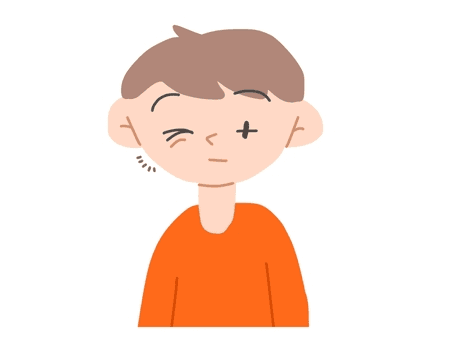Tics are unwanted and unplanned movements and sounds which some people experience.
These tend to be things that everybody does such as blinking their eyes, stretching their muscles, sniffing, coughing and throat clearing. However, people who have tics repeat them a lot and they can experience pain and discomfort and become embarrassed and self-conscious when other people notice they do it more often than others. Imagine sniffing repeatedly but not needing to because you don’t have a cold.
Tics are a neurological symptom (which means they are made by the persons brain). Our current best theory about why some people have them is that their brains work a bit faster and they have more signals to move than other people. They are more common in young people that experience other symptoms where the brain is more active such as hyperactivity, fidgetiness and struggling to concentrate. They can often run in families, and we think there is a strong genetic element to which people experience them.
Tics can sometimes be briefly held in (suppressed) which feels really similar to holding open your eyes. It’s something we can all do, but it gets really uncomfortable very quickly, and there is a feeling in our eyes telling us to blink. This is often how children explain what tics feel like. There is a build-up of ‘pressure’ and tic relieves it.
Tics are really common and tic disorders are present in about 3% of the population of children and 1% have both the movement (referred to as motor tics) and sound (referred to as phonic or vocal tics) types of tics. A chronic tic disorder is when they have been present for over 1 year. So, a Chronic motor tic disorder means movement tics that have been present for longer than a year. Tourette syndrome means both types of tics have been present for longer than a year. Tics often start in early childhood but can go on to affect people in adulthood as well.
Most tic disorders are really mild and do not stop the young person or adult doing anything in life but as with all medical conditions, some people can have them very severely and they can be very uncomfortable. There are treatments that can help such as learning more about them (called psycho-education), taking certain medication and seeing a trained tic therapist for talking therapies such as behavioural therapy.
For support information and how to refer to the local service please see the information below:
Developmental Neuropsychiatry Tic Disorder Service | Nottinghamshire Healthcare NHS Foundation Trust
